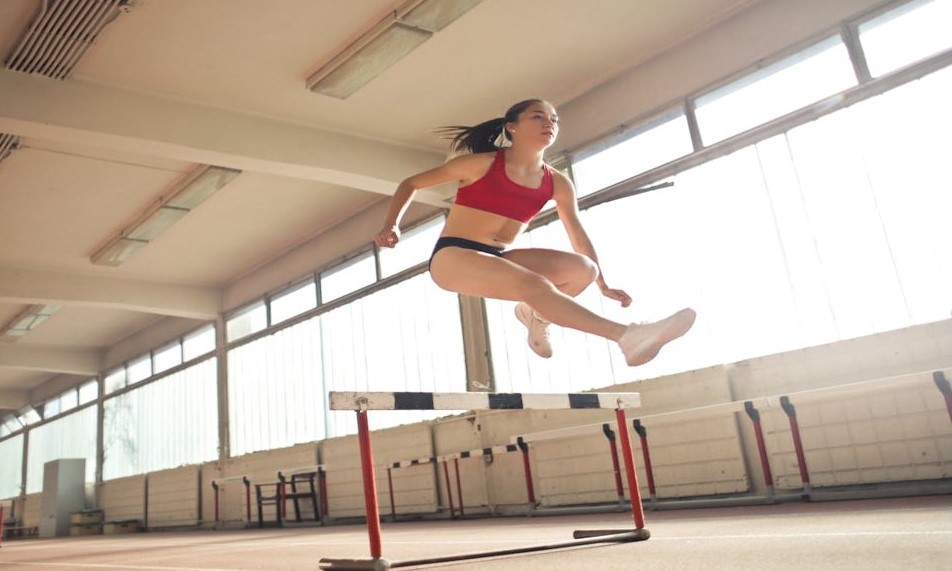In sports, being physically strong alone does not guarantee success. Athletes are now using mental training more than ever to improve their performance by accessing the power of the mind. Techniques such as mindfulness or visualisation can offer a competitive edge. And if you’re a sports fan looking for extra excitement, don’t forget to check out the MelBet promocode for some added fun.
The Scientific Basis of Mental Training
Mental training for athletes is based on established theories and research in psychology. For example, cognitive-behavioural methods assist athletes in managing their thoughts and emotions, which can have a direct impact on physical performance. Mental exercises have been shown to increase concentration, decrease anxiety and build confidence, all vital components for success in sports.
Additionally, neuroscience research indicates that mental training can improve brain functions associated with athletic ability. Neural pathways are stimulated by practices like visualisation in much the same way as they would be during physical practice, thus effectively ‘training’ the brain to perform better under real-life conditions. This kind of mental rehearsal equips competitors with necessary skills to handle pressure during events and perform them accurately.
Mental Training Methods
To improve their performance, athletes use many different methods of mental training. These are some of the most effective approaches:
- Visualisation: Creating a mental picture of success to act as a guide for physical action.
- Sitting meditation: Being aware and staying present in order to concentrate better and be less stressed out.
- Goal setting: Establishing clear objectives that are possible so as to stay motivated and on track.
- Positive self-talk: Building confidence by thinking positively about oneself or one’s abilities.
- Relaxation techniques: Breathing deeply, progressively tensing then relaxing muscles, etc., in order to manage anxiety levels among other things.
These skills, if adopted into regular practice, can greatly improve an athlete’s mental toughness as well as overall performance in games.
Effect of Mental Training on Performance
Refocusing, stress control, and self-confidence increase athletic performance through mental exercises. Often, athletes experience better outcomes in their sports activities when they perform regular mental practices.
Increasing Focus and Attention Span
Mental preparation is very important to increase focus and concentration for athletes. Visualisation and mindfulness meditation are two techniques that help athletes be present and engage fully in their activities. By imagining positive results, athletes can practise mentally for their performance, thus setting up their minds and bodies for actual competition, which reduces distractions and keeps them concentrated on what they are supposed to do.
Additionally, mindfulness meditation teaches sportspeople how to become aware of their thoughts so as to control them effectively. This kind of awareness enables them to know quickly what distracts them, hence getting rid of it fast, thereby remaining focused on relevant areas while performing. When concentration is improved, decision-making ability also improves, leading to better execution when under pressure, which gives players an upper hand in games.
Dealing with Stress and Nervousness
Mental training is equally important in dealing with stress and nervousness while participating in games. Players usually come across high-pressure environments that might cause anxiety, which may affect their performance negatively. Techniques such as deep breathing exercises and progressive muscle relaxation help reduce physiological symptoms of anxiety, promoting a sense of calm and control.
Moreover, positive self-talk, together with cognitive restructuring, remains a vital technique towards overcoming negative thoughts as well as building confidence. Athletes should substitute doubts about themselves with statements confirming their capabilities, thereby enabling them to approach competitions with a positive attitude. Another thing is that viewing things differently not only relieves fear but also increases resilience. Therefore, mental toughness is developed during hard times when one’s thinking shifts about difficult circumstances being opportunities for growth.
Successful Mental Training Case Studies
Mental training has helped many athletes greatly improve their performance. Some of the best examples are:
- Michael Phelps: He used visualisation methods to develop his races mentally, which contributed to his record-breaking Olympic triumph.
- Simone Biles: To stay focused and confident during high-pressure gymnastics competitions, she practises mindfulness and positive self-talk.
- Cristiano Ronaldo: Through goal setting and imagery, he improves his football skills and on-field performances.
- Serena Williams: In tennis matches, she applies relaxation techniques alongside cognitive restructuring for anxiety management as well as sustaining mental toughness.
These sportspeople show that mental training can revolutionise peak performance attainment.
Future Outlooks for Mental Training
The realm of mental conditioning in sports is going to expand because of the combination of technology and psychology. Athletes are now able to use virtual reality (VR) as a means of simulating competitive settings, which can help improve their readiness for such events. Through this immersive experience, competitors learn how to visualise and manage stress under controlled conditions.
Additionally, biofeedback devices have been integrated into training programmes so that athletes may keep track of physiological responses during exercises. By finding out what happens inside their bodies when they get stressed out, players can come up with better ways how to handle pressure situations and maximise performance levels. These breakthroughs will make mental training become more important in sports than ever before.
Final Words
Mental training changes athletic performances by increasing concentration levels, teaching people how to deal with anxiety and generating confidence. As long as technological advancements continue alongside the improvement of psychological methods, there will be no boundaries whatsoever for mental coaching in terms of its potential benefits for athletes’ capabilities. Thus making it a necessary part of all levels, from beginner to professional sportspersons’ career development.
